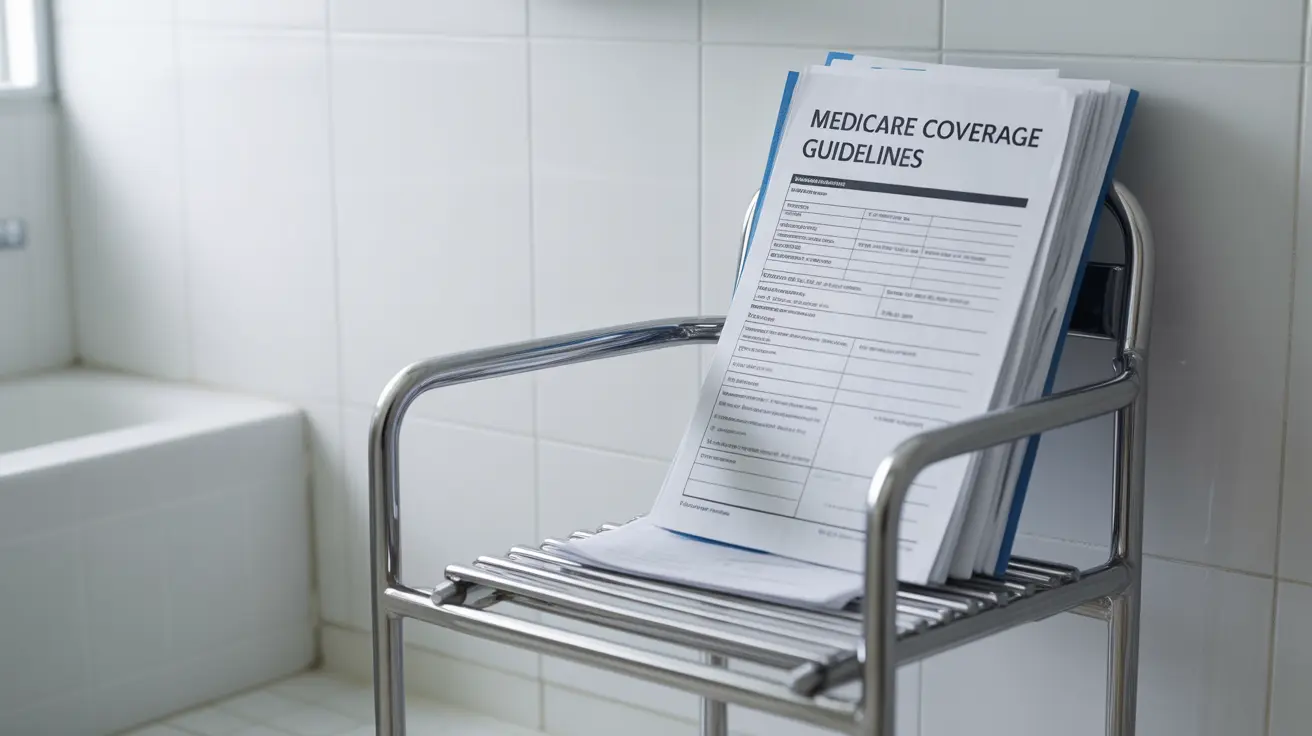Understanding Medicare coverage for shower chairs and bathroom safety equipment is crucial for seniors and individuals with mobility challenges. While Medicare's policies regarding these essential safety items can be complex, knowing your options and coverage possibilities can help you make informed decisions about acquiring necessary bathroom safety equipment.
This comprehensive guide explores Medicare coverage for shower chairs, alternative payment options, and steps you can take to potentially secure coverage for these important safety devices.
Understanding Original Medicare Coverage for Shower Chairs
Original Medicare (Part B) typically has specific guidelines regarding coverage for durable medical equipment (DME). When it comes to shower chairs, the coverage situation requires careful understanding:
- Standard shower chairs are generally not covered
- Some specialized bath safety equipment may qualify under specific circumstances
- A doctor's prescription and medical necessity documentation are usually required
- Coverage decisions are made on a case-by-case basis
Medicare Advantage Plans and Shower Chair Coverage
Medicare Advantage (Part C) plans often provide more flexibility in coverage options compared to Original Medicare:
- Many plans offer additional benefits for home safety equipment
- Coverage varies by plan and provider
- Some plans may include allowances for over-the-counter medical equipment
- Supplemental benefits might help offset costs
Qualifying Criteria for Medicare Coverage
To increase the likelihood of Medicare coverage for a shower chair, certain criteria typically need to be met:
- The equipment must be deemed medically necessary
- A detailed prescription from a healthcare provider is required
- The chair must meet Medicare's DME specifications
- Documentation of medical conditions affecting mobility or balance
- The equipment must be obtained from Medicare-approved suppliers
Alternative Funding Sources for Shower Chairs
If Medicare coverage isn't available, several alternative options exist for obtaining shower chair assistance:
- Medicaid programs in certain states
- Veterans Administration benefits for eligible individuals
- Non-profit organizations and charitable foundations
- State-specific assistance programs
- Local Area Agency on Aging resources
Documentation and Prescription Requirements
Proper documentation is essential when seeking Medicare coverage for shower chairs:
- Detailed medical records showing necessity
- Specific diagnosis codes related to mobility issues
- Physical therapy evaluations when applicable
- Face-to-face examinations with healthcare providers
- Regular assessment updates for ongoing needs
Frequently Asked Questions
Does Original Medicare Part B cover the cost of shower chairs for home use?
Original Medicare Part B generally does not cover standard shower chairs. However, in specific cases where specialized bath safety equipment is deemed medically necessary and prescribed by a doctor, coverage may be possible through the DME benefit.
Can Medicare Advantage plans help pay for shower chairs or other bathroom safety equipment?
Yes, many Medicare Advantage plans offer additional coverage for bathroom safety equipment, including shower chairs. Coverage varies by plan, so it's important to check your specific plan's benefits.
What criteria does Medicare use to decide if a shower chair qualifies as durable medical equipment (DME)?
Medicare evaluates whether the equipment is medically necessary, durable, used for a medical purpose, and typically only useful for someone who is ill or injured. The equipment must also be appropriate for home use and prescribed by a healthcare provider.
Are there alternative programs or insurance options that can help cover the cost of a shower chair if Medicare does not?
Yes, alternatives include Medicaid, Veterans Benefits, non-profit organizations, state assistance programs, and local aging services. These programs may offer financial assistance or direct equipment provision.
How can I increase the chances of Medicare covering a shower chair through documentation or prescriptions?
To improve chances of coverage, obtain detailed documentation from your healthcare provider demonstrating medical necessity, ensure all prescriptions include specific diagnosis codes, and work with Medicare-approved suppliers. Regular assessments and updates to medical documentation can also support your case.




